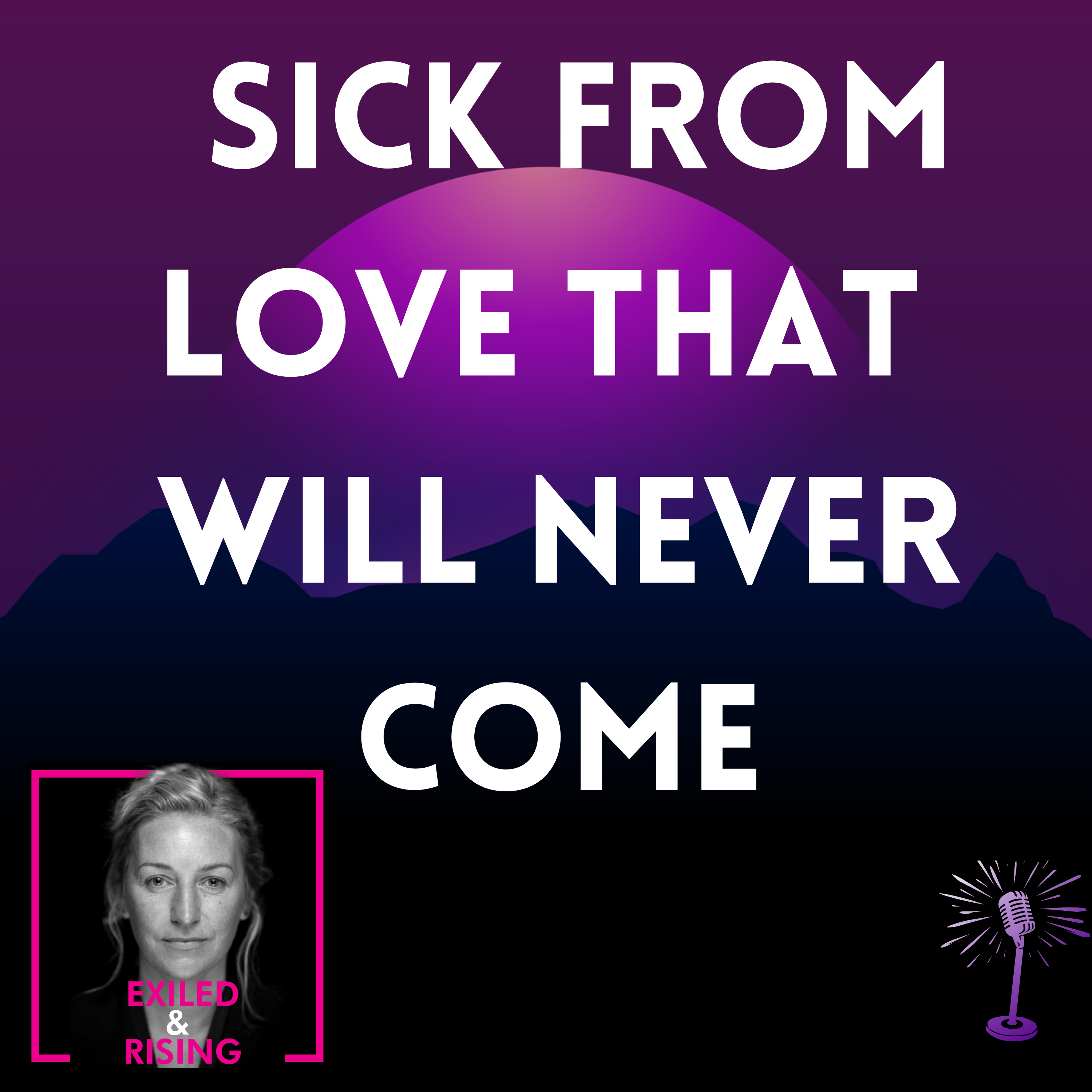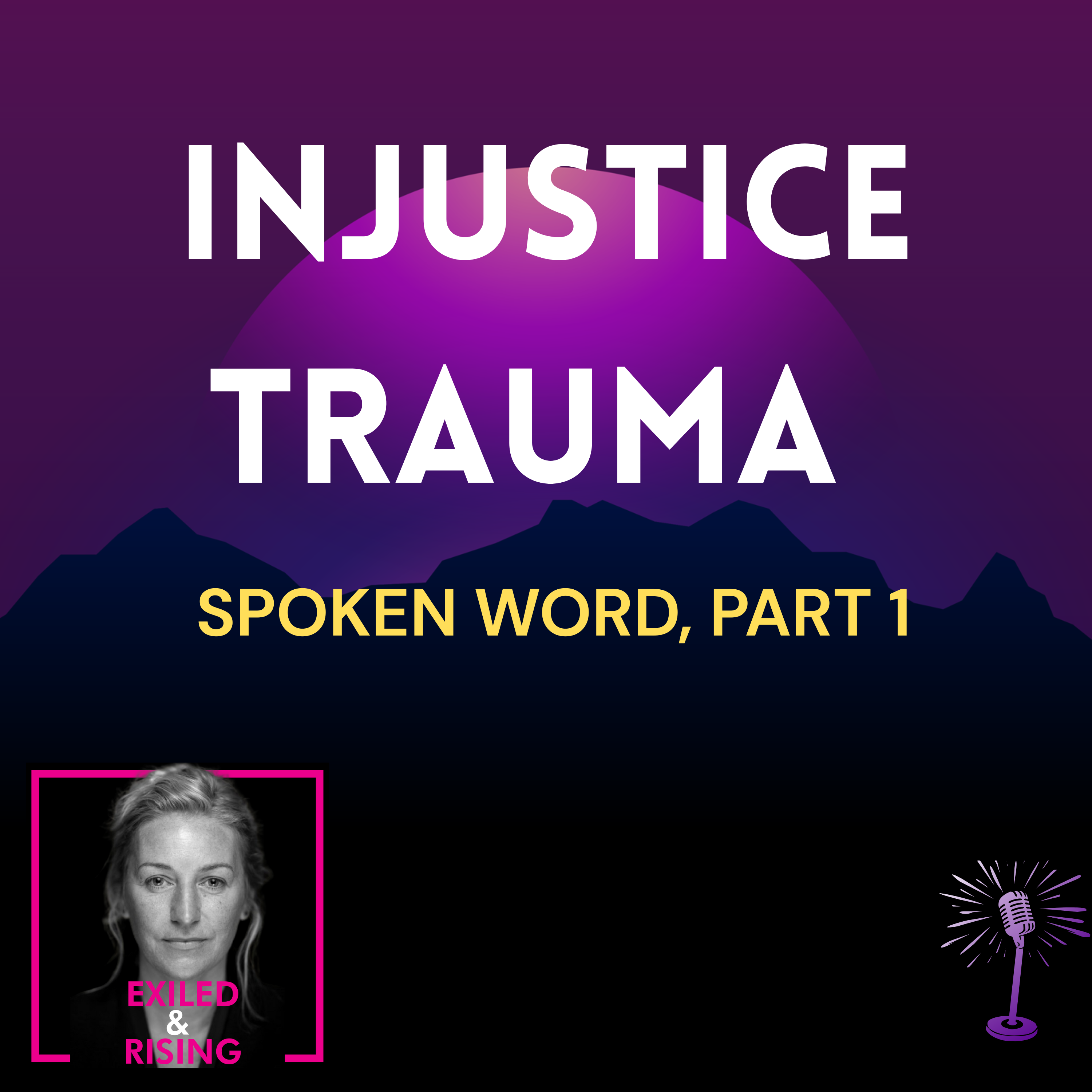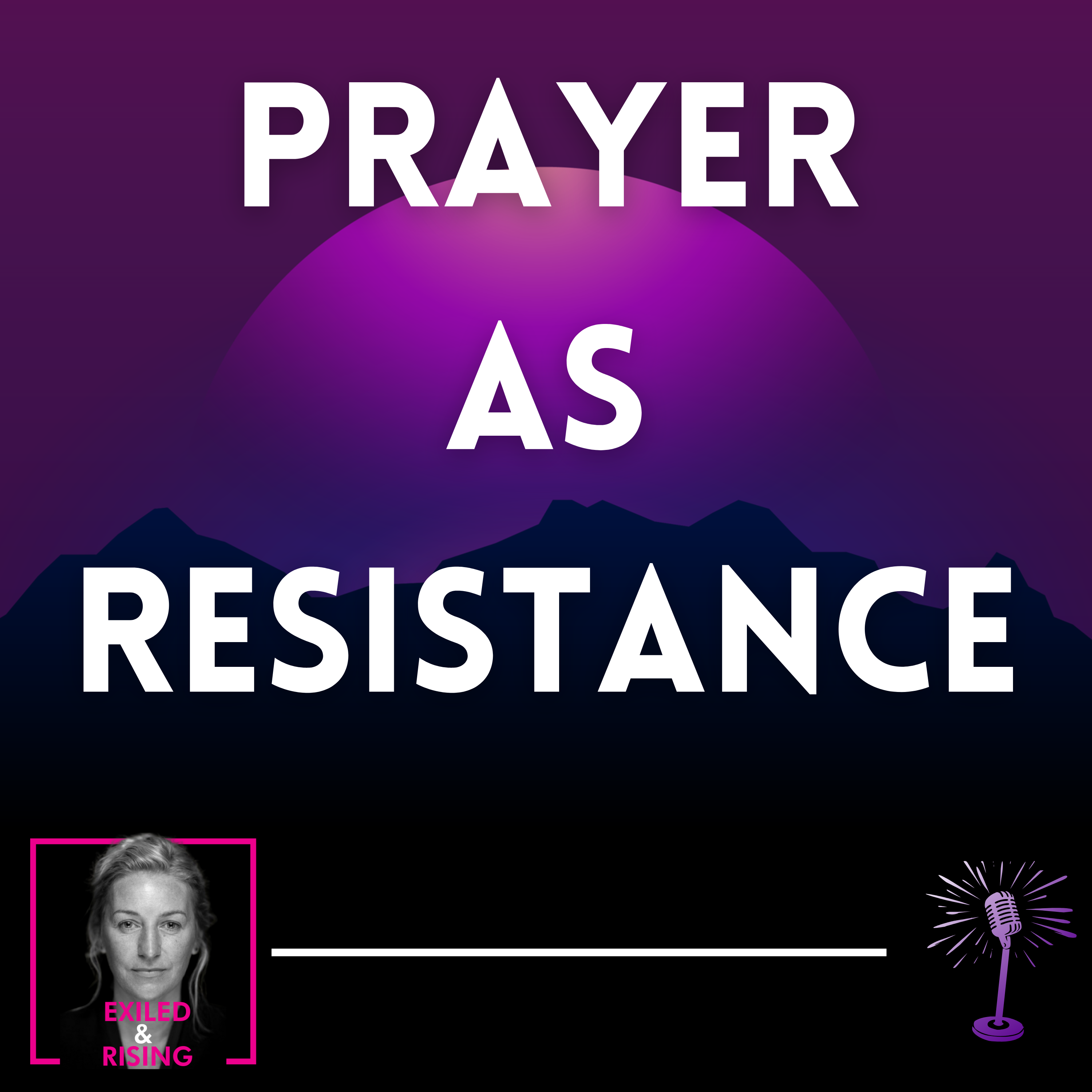Show Notes
What if the love you’re waiting for is making you sick? In this episode, somatic therapist Ana Mael exposes how emotional abuse carves exhaustion into your body, your face, and your soul. This isn’t aging — it’s trauma written on your skin.
When Ana Mael, a somatic experiencing therapist for PTSD and trauma recovery, read her poem Face of Exhausted Woman on her podcast Exiled & Rising, she was not only reading poetry. She was offering a map of what emotional trauma and abuse does to the women body, to the face, and to the nervous system.
At the heart of her teaching is a simple but devastating idea: abuse leaves evidence. The Poem as Witness In the poem, Ana describes looking into the face of a friend who had aged “twenty years in a year” under the weight of a partner’s neglect. The woman’s spark had disappeared, her words drifted into trivialities, and her eyes clung to false hope: that “true love never dies.” The poem ends with a haunting question—“Is that the price of having a man?”—inviting listeners to see how love distorted by abuse is not love at all, but a slow death.
----------------------------------------------------
️ Enroll in the Presale of “When Love Makes You Disappear” Somatic Teaching Course https://exiledandrising.mykajabi.com/offers/UVVeeRhs
Exiled & Rising – Premium Podcast Membership. JOIN FOR FREE: https://exiledandrising.supercast.com/
Get the Book: The Trauma We Don't Talk About https://amzn.to/41SjKKL _______________________________________________
The Somatic Map of Trauma Moving from art to anatomy, Ana translates the poem into what she calls a somatic map: Emotional decay is visible. Chronic emotional abuse collapses posture, dulls the eyes, and unsettles the voice. The body tells the truth even when words cannot.
The illusion of love. The cultural myth that “true love never dies” functions as spiritual gaslighting. It keeps women locked in abusive cycles, their nervous systems suspended between fight, flight, freeze, and collapse. Internalized patriarchy.
Women are groomed across generations to wait, endure, and shrink for the sake of male growth. This cultural training manifests in the body as exhaustion, hormonal imbalance, and chronic illness.
Dissociation as survival. Talking about “trivial things” is not weakness but the nervous system’s way of protecting against unbearable truth. Facial trauma expression. Trauma literally etches itself into muscle tone, skin, and gaze. As Mael insists, “This is not aging. This is trauma carving itself into identity.”
Beyond the Individual: A Cultural Diagnosis Ana does not stop at the personal. She locates these bodily symptoms in a wider political system. Patriarchy, she argues, grooms women to mistake endurance for love and compliance for femininity.
What looks like “being supportive” is often a lineage of suppression: mothers and grandmothers teaching daughters to bend so men can feel safe. The result is not only psychological despair but physical illness. Fibromyalgia, adrenal fatigue, and autoimmune conditions appear, Mael notes, not as individual failures but as cultural consequences carried in the body.
The Power of Witnessing Perhaps the most radical part of her teaching is her call for witnessing rather than fixing. Friends, she says, should not offer false hope but honest reflection: “Sometimes the most loving thing you can do is stop feeding someone’s false hope.” Healing begins when women see themselves clearly again—through another’s eyes, through somatic practice, through collective truth-telling.
Why It Matters Now Ana’s voice cuts across a culture that still tells women that love redeems all suffering. By combining poetry, clinical somatic language, and political critique, she shows that abuse is not only emotional—it is embodied, it is cultural, and it is visible. Her teaching lands with urgency: no love should carve the face of exhaustion and dying.



